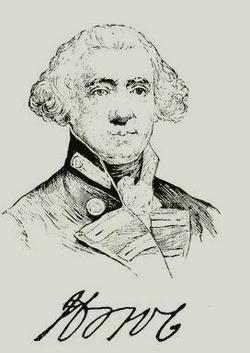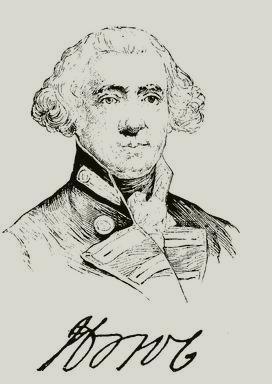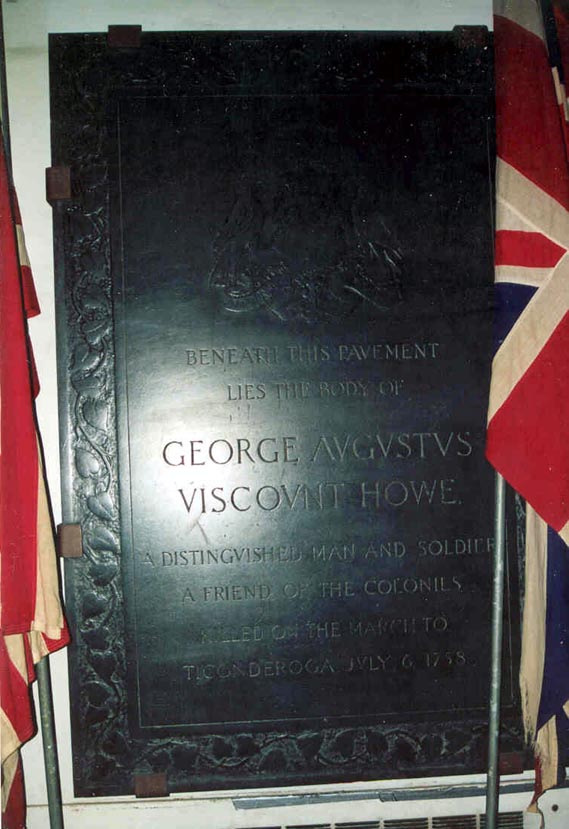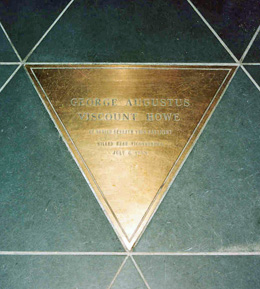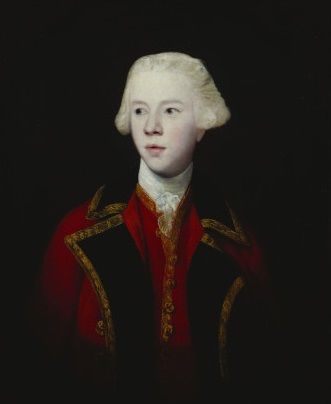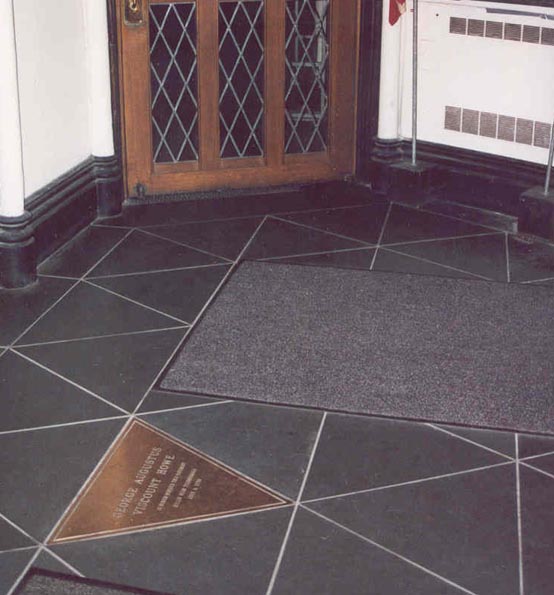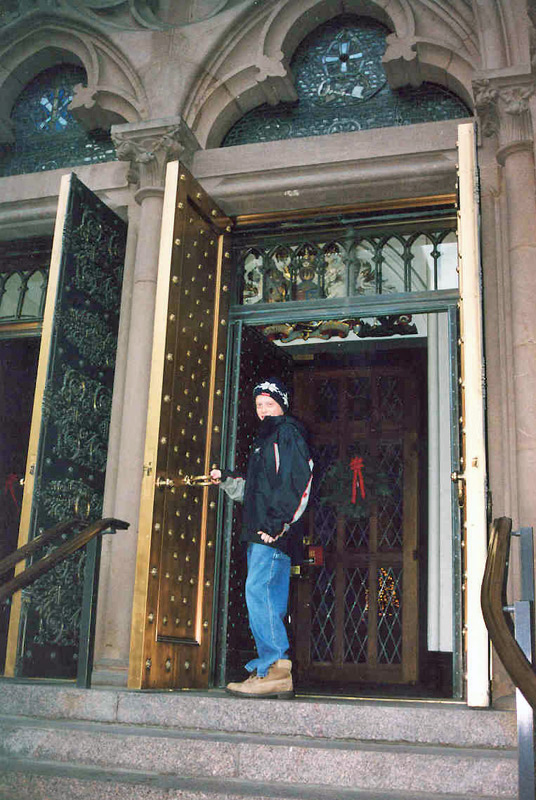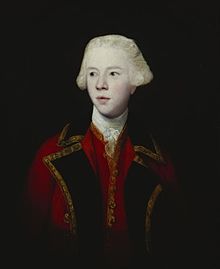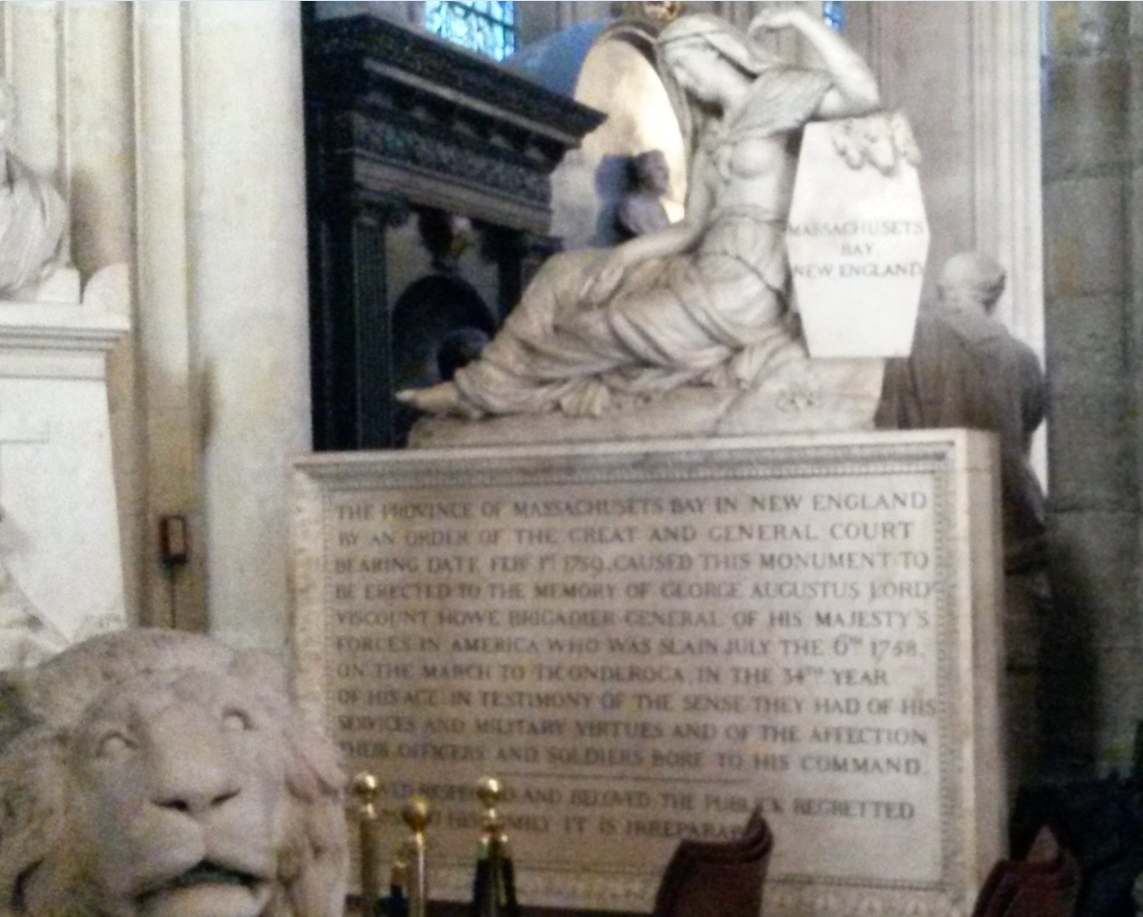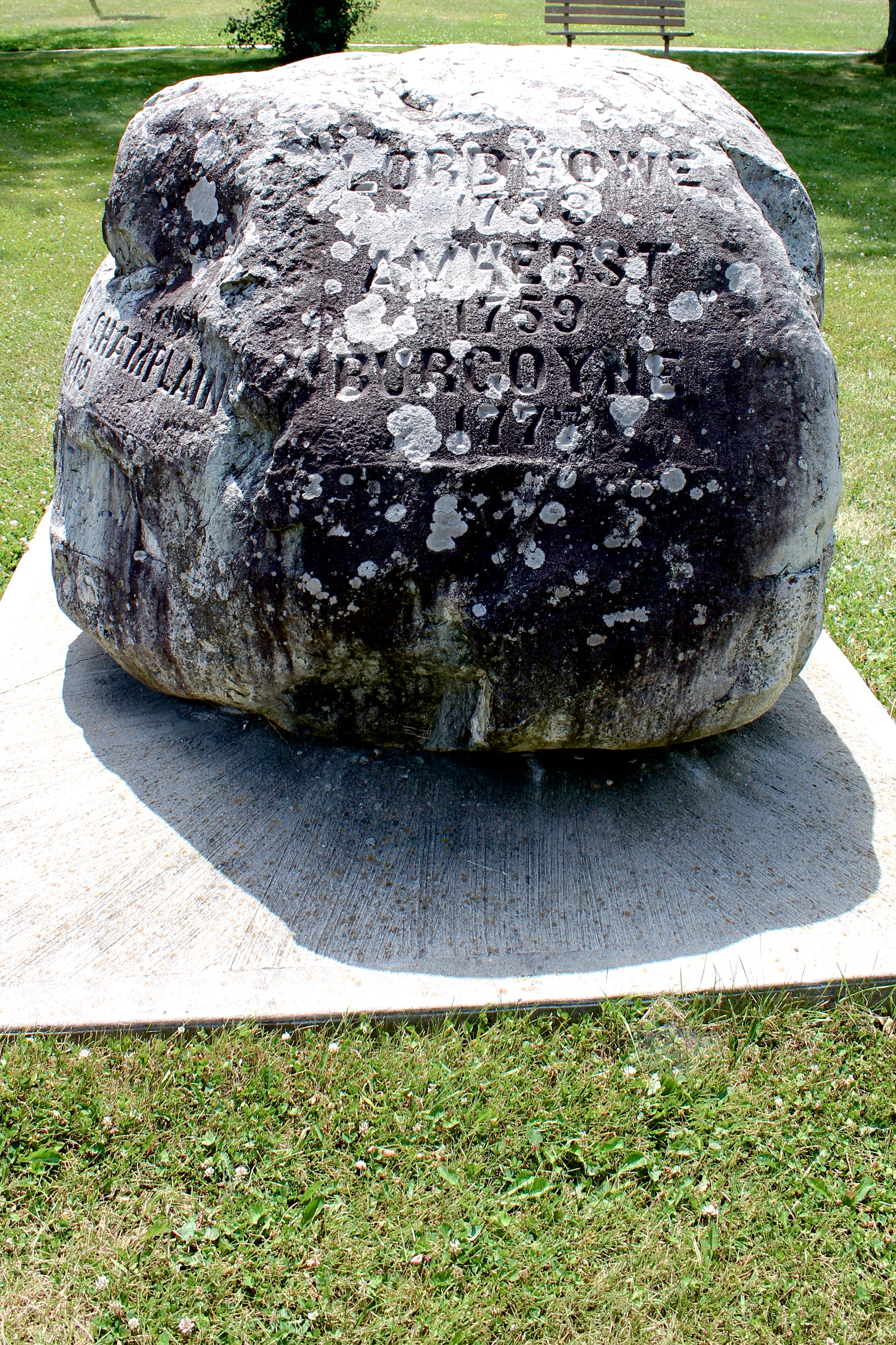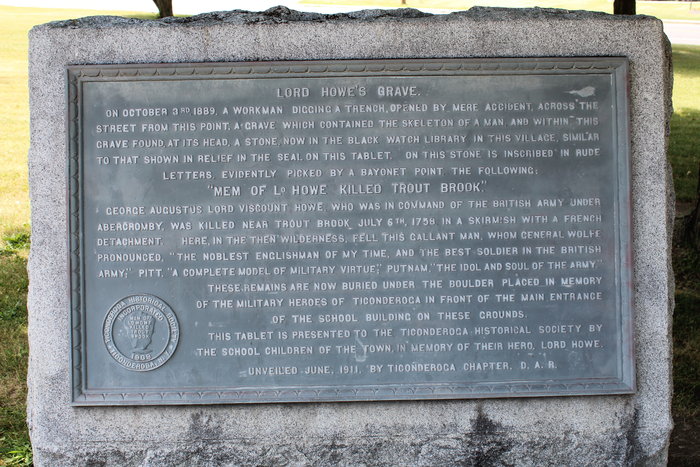Howe, the son of Lt-Gen. Lord Emanuel Scrope Howe, 2nd Viscount Howe, and a grandson of Britain's King George I, entered the army at an early age and rose up through the ranks. With the death of his father in 1735, he became Lord Howe, 3nd Viscount Howe. In 1757, he was promoted to colonel of the 3rd Battalion in the 60th (Royal American) Regiment of Foot which was sent to Halifax, Nova Scotia. At the time, Britain was fighting the French for control of North America in the French and Indian War. While in Halifax, Howe was transferred to the command of the 55th Regiment of Foot in September and three months later at age 32, promoted to brigadier general. The following year in 1758, his regiment participated in General James Abercrombie unsuccessful assault on French controlled Fort Carillon (later renamed Fort Ticonderoga), situated between Lake George and Lake Champlain in upstate New York. On July 6, Howe led one of four columns of British troops, along with Connecticut militia, from the shores of Lake George through the wooded terrain towards Fort Carillon, commanded by General Marquis de Montcalm, when they encountered a unit of French soldiers. In the ensuing skirmish the British did very well capturing 148 French soldiers and causing twice that in casualties. Unfortunately, in their attack, a French soldier shot a musket ball into General Howe's chest. He reportedly died in the arms of Major Israel Putnam of the Connecticut militia (and future general in the Continental Army during the American Revolution). The Massachusetts Assembly later voted £250 to place a monument in Howe's memory in Westminster Abbey in London. George Augustus Howe is the older brother of Admiral Richard Howe and General William Howe, who both fought with distinction during the American Revolution.
∼3rd Viscount Howe
British General killed in French and Indian War
A monument to his memory was voted by the Massachusetts Colony Assembly
Howe, the son of Lt-Gen. Lord Emanuel Scrope Howe, 2nd Viscount Howe, and a grandson of Britain's King George I, entered the army at an early age and rose up through the ranks. With the death of his father in 1735, he became Lord Howe, 3nd Viscount Howe. In 1757, he was promoted to colonel of the 3rd Battalion in the 60th (Royal American) Regiment of Foot which was sent to Halifax, Nova Scotia. At the time, Britain was fighting the French for control of North America in the French and Indian War. While in Halifax, Howe was transferred to the command of the 55th Regiment of Foot in September and three months later at age 32, promoted to brigadier general. The following year in 1758, his regiment participated in General James Abercrombie unsuccessful assault on French controlled Fort Carillon (later renamed Fort Ticonderoga), situated between Lake George and Lake Champlain in upstate New York. On July 6, Howe led one of four columns of British troops, along with Connecticut militia, from the shores of Lake George through the wooded terrain towards Fort Carillon, commanded by General Marquis de Montcalm, when they encountered a unit of French soldiers. In the ensuing skirmish the British did very well capturing 148 French soldiers and causing twice that in casualties. Unfortunately, in their attack, a French soldier shot a musket ball into General Howe's chest. He reportedly died in the arms of Major Israel Putnam of the Connecticut militia (and future general in the Continental Army during the American Revolution). The Massachusetts Assembly later voted £250 to place a monument in Howe's memory in Westminster Abbey in London. George Augustus Howe is the older brother of Admiral Richard Howe and General William Howe, who both fought with distinction during the American Revolution.
∼3rd Viscount Howe
British General killed in French and Indian War
A monument to his memory was voted by the Massachusetts Colony Assembly
